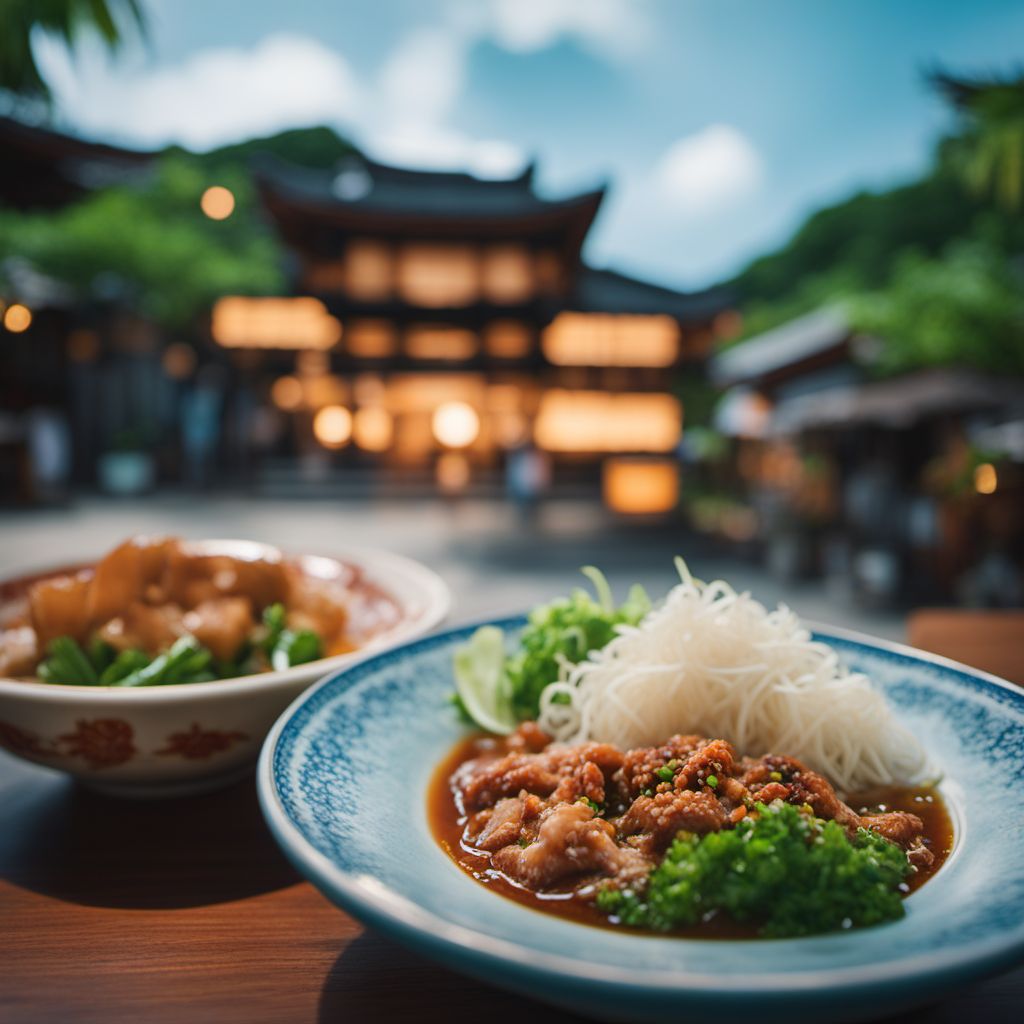
Cuisine
Okinawan cuisine
Okinawan cuisine is characterized by its use of local ingredients, such as pork, fish, and vegetables. It is also known for its use of bitter melon, which is believed to have health benefits. Okinawan cuisine is generally considered to be healthy, as it is low in fat and high in nutrients. It is also known for its use of umami, which is a savory taste that is often described as meaty or brothy.
Typical ingredients
Pork, Fish, Bitter melon, Tofu, Seaweed, Sweet potato, Goya (bitter melon), Konbu (kelp), Shikuwasa (a citrus fruit), Mozuku (a type of seaweed), Sata andagi (a type of fried doughnut),
Presentation and garnishing
Okinawan cuisine is often presented in small, colorful dishes, which are meant to be shared. It is also often garnished with local ingredients, such as shikuwasa or goya.
Okinawan cuisine is known for its use of local ingredients, such as goya and shikuwasa. It is also known for its unique blend of Japanese, Chinese, and Southeast Asian influences.
More cuisines from this region...
History
Okinawan cuisine has a long history, dating back to the Ryukyu Kingdom, which ruled the Okinawa Islands from the 15th to the 19th century. During this time, the kingdom developed its own unique culture, which included its own cuisine. Okinawan cuisine was heavily influenced by Chinese and Southeast Asian cuisine, as the kingdom had close trade ties with these regions. After the Ryukyu Kingdom was annexed by Japan in the late 19th century, Okinawan cuisine continued to evolve, incorporating Japanese ingredients and cooking techniques.
Cultural significance
Okinawan cuisine is an important part of Okinawan culture, and is often served at festivals and other special occasions. It is also popular among tourists, who come to the Okinawa Islands to experience the unique culture and cuisine. Okinawan cuisine is also known for its health benefits, as it is low in fat and high in nutrients. It is believed to be one of the reasons why Okinawans have one of the highest life expectancies in the world.
Health benefits and considerations
Okinawan cuisine is believed to have many health benefits, including reducing the risk of heart disease, cancer, and diabetes. It is also believed to promote longevity.
Okinawan cuisine dishes
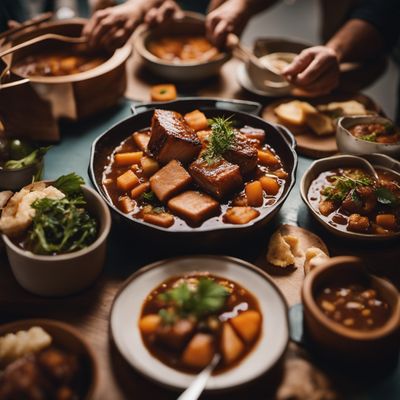
Rafute
Pork Belly Stew
Rafute is a traditional Okinawan dish that is made with pork belly and soy sauce. It is a rich and flavorful dish that is perfect for cold winter nights.
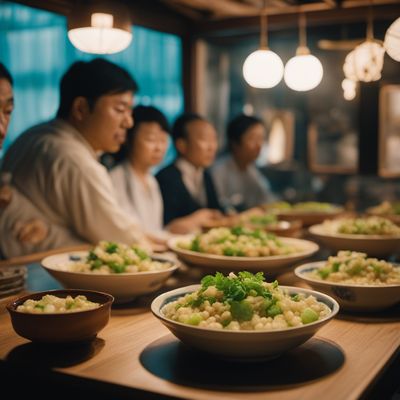
Goya chanpuru
Goya chanpuru is a popular Okinawan dish made with bitter melon, tofu, and pork belly.
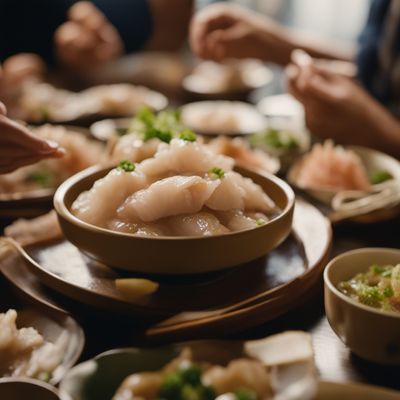
Shutō
Pickled Fish Guts
Shutō is a traditional Japanese dish made with fermented fish and soy sauce.
Okinawan cuisine recipes Browse all »
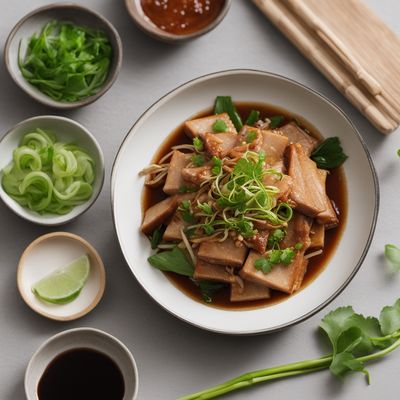
Okinawan Goya Chanpuru with Tofu and Pork
Bitter Melon Stir-Fry: A Savory Delight from Okinawa
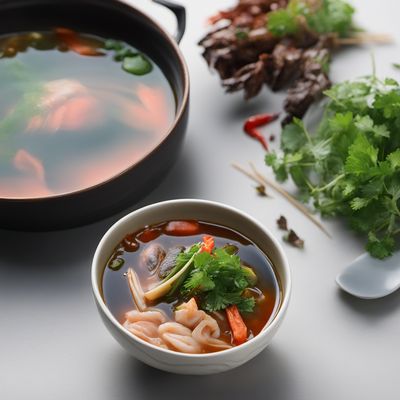
Okinawan Seafood Soup
Oceanic Delight: Okinawan Seafood Soup
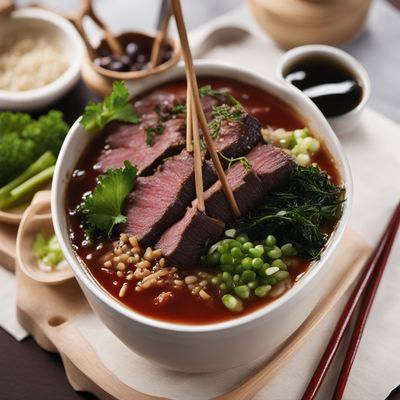
Okinawan-style Beef Fondue
Savory Okinawan Beef Fondue: A Flavorful Twist on a Classic Dish
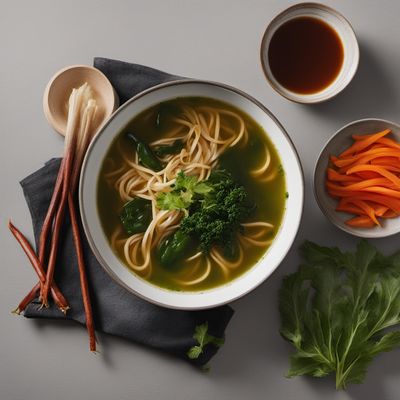
Okinawan Poblano Soup
Spicy Okinawan Delight: Poblano Soup with a Twist
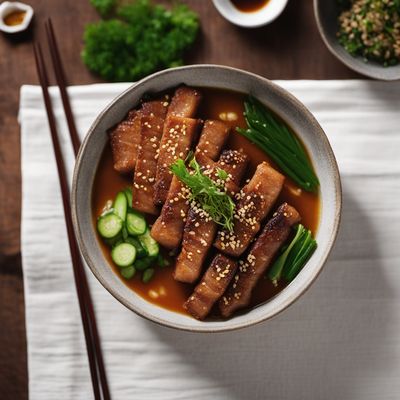
Okinawan Pork and Rice Cake Delight
Savory Okinawan Pork and Rice Cake Medley

Okinawan-style Bregenwurst with Purple Sweet Potato Mash
Purple Delight: Okinawan-style Bregenwurst with Creamy Sweet Potato Mash
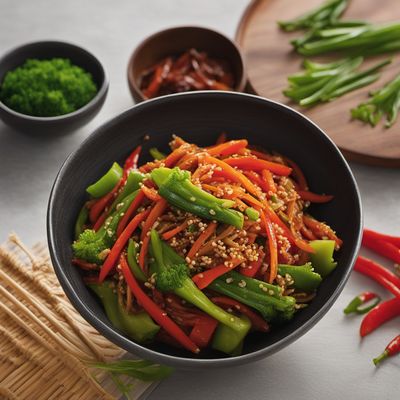
Shutō Stir-Fry with Okinawan Flavors
Okinawan Delight: A Flavorful Stir-Fry with Shutō

Okinawan Sweet Potato Saint Genix
Purple Delight: Okinawan Sweet Potato Saint Genix
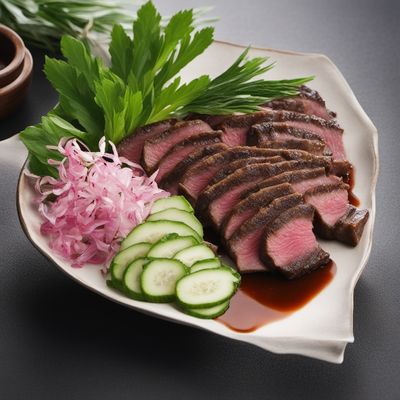
Grilled Beef Tongue with Okinawan Twist
Savory Okinawan Beef Tongue Delight
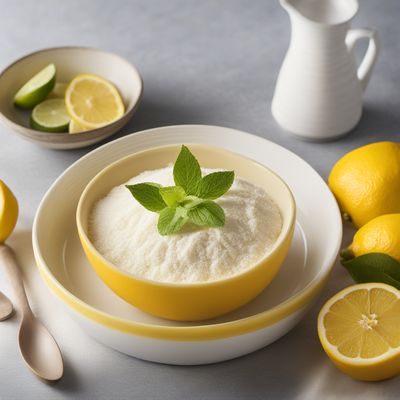
Okinawan Delight with Zesty Citrus Twist
Zesty Okinawan Lemon Delight
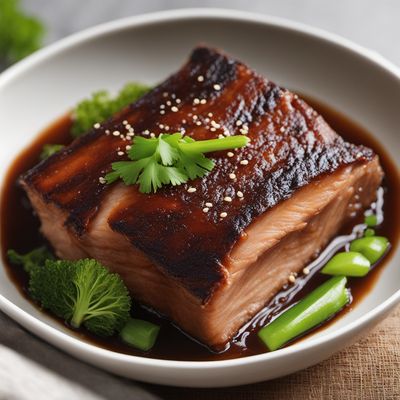
Okinawan Braised Pork Belly (Rafute)
Meltingly Tender Okinawan Pork Belly Delight
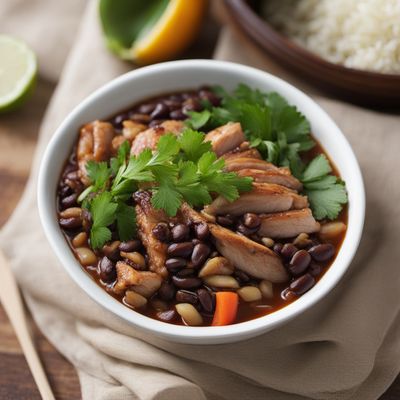
Okinawan Rice and Beans with Braised Chicken
Savory Harmony: Okinawan Rice and Beans with Tender Braised Chicken